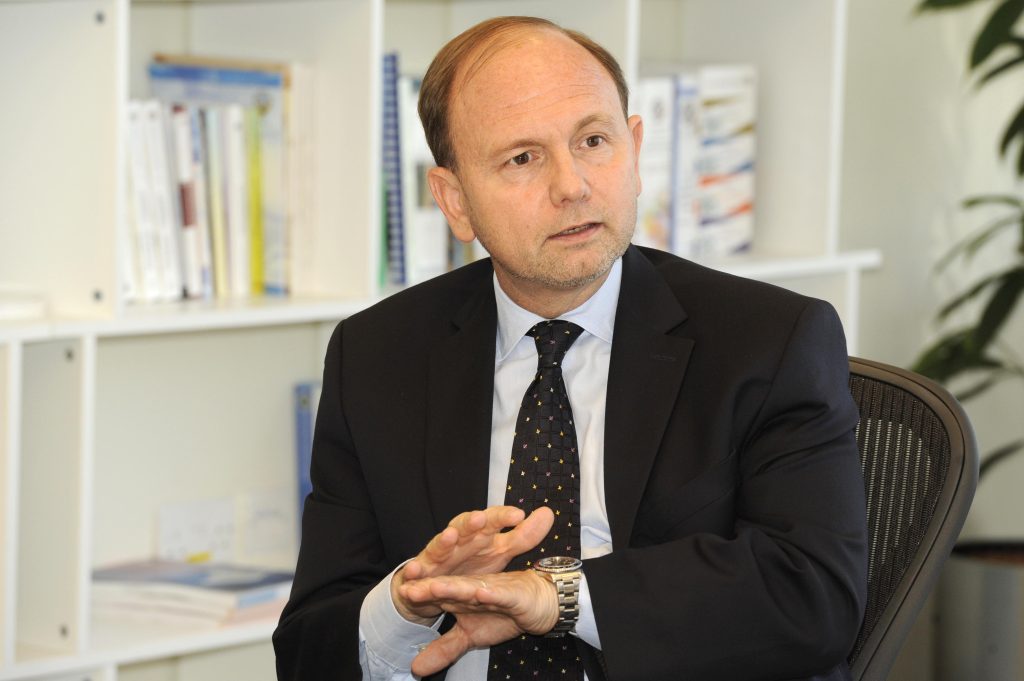Our Terms & Conditions | Our Privacy Policy
World Bank pushes for business-driven growth
The World Bank has called on Malawi to urgently transition from a government-led to a private sector–driven growth model, warning that continued reliance on desired public spending will not deliver the structural transformation.
World Bank country manager Firas Raad said in an interview on Friday in Lilongwe that the country’s economic stagnation as evidenced by five consecutive years of negative per capita growth, calls for bold reforms and renewed focus on private capital mobilisation.
 Raad: Malawi has been stuck in low-growth equilibrium for decades.
Raad: Malawi has been stuck in low-growth equilibrium for decades.
He said: “This country has been stuck in low-growth equilibrium for decades. In 2025, we are no longer in a low-growth situation; we are experiencing negative per capita growth.
“Given the high debt, inflation and macroeconomic instability, the only viable path forward is to incentivise private investment, both domestic and international.”
Raad’s call comes as Malawi grapples with rising public debt, which has hit K16 trillion and shrinking fiscal space.
In the 2025/26 National Budget pegged at K8 trillion, interest payments alone are projected to absorb about 49 percent of total domestic revenues at K4.4 trillion, underscoring the limited room for public sector-led growth.
Data from the International Monetary Fund shows that Malawi’s economic growth has remained sluggish over the past five years, with gross domestic product (GDP) growth rates of one percent in 2020, rebounding to 4.6 percent in 2021, before falling to 0.9 percent in 2022, 1.5 percent in 2023 and 1.8 percent in 2024.
On average, the economy has grown by just 1.96 percent annually, below the estimated population growth rate of 2.3 percent.
While growth is forecast to rebound to four percent in 2025, according to the Malawi Government forecast, it is unlikely to recover the GDP per capita losses of the past half-decade.
Raad highlighted energy and mining as priority sectors for reform, adding that boosting energy supply can support industrialisation, job creation and value addition while mining can emerge as a major source of foreign exchange.
“Reforming the energy sector to improve supply will be crucial for supporting industrial growth, which is vital for job creation and value addition. ,” he said.
Raad cautioned that short-term fixes such as currency devaluation are insufficient to resolve the country’s chronic foreign exchange shortages.
Instead, he advocated for a shift from consumption- and import-driven growth to a model anchored in production, investment, and exports.
On Friday, the World Bank launched two key financing instruments, namely the Integrated National Financing Framework and the Sustainable Development Goal Investor Map designed to align public and private investment with the country’s national development priorities.
Malawi Confederation of Chambers of Commerce and Industry chief executive officer Daisy Kambalame said in an interview that the new instruments offer a chance to channel private investment into high-impact sectors.
“If we operationalise what is in these documents and national growth and development blueprints, then we can ensure that our investment is targeted to catalytic interventions in critical sectors such as agriculture, tourism and mining,” she said.
On his part, Minister of Trade and Industry Vitumbiko Mumba said government will expedite implementation of action plans to ensure meaningful outcomes.
The International Monetary Fund (IMF) indicates that Malawi has struggled to sustain growth for decades, despite large inflows of official development assistance.
IMF says over the past three years the situation has been particularly difficult, with stagnating growth and widening macroeconomic imbalance due to unsustainable debt and the lingering effects of multiple shocks such as natural disasters and the Covid-19 pandemic.
[ad_1]
Images are for reference only.Images and contents gathered automatic from google or 3rd party sources.All rights on the images and contents are with their legal original owners.
[ad_2]



Comments are closed.